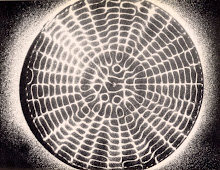A brief History of Hypnosis
Franz Anton Mesmer (1734-1815) was born in Vienna and is considered to be the "Father of Hypnosis". He is remembered for the term mesmerism which described a process of inducing trance through a series of passes he made with his hands and/or magnets over people. He worked with a person's animal magnetism (psychic and electromagnetic energies). The medical community eventually discredited him despite his considerable success treating a variety of ailments.
1795-1860 James Braid (1795-1860), an English physician, originally opposed to mesmerism (as it had become known) but then became interested. He said that cures were not due to animal magnetism however but to suggestion. He developed the eye fixation technique (also known as Braidism) of inducing relaxation and called it hypnosis (after Hypnos, the Greek god of sleep - click here to learn a little more about him) Braid thought the hypnotic phenomena was a form of sleep. Later, realising his error, he tried to change the name to monoeidism (meaning influence of a single idea) however, the original name stuck.
Dr. James Easdale (1818 - 1859), a colleague of Braid's, began to experiment with Hypnotic Anesthesia while serving the British East India Company in Calcutta, India. His success resulted in lowering the surgical mortality rate to less than 5 percent in over 300 surgical operations.
Pierre Janet (1845-1947) was a French neurologist and psychologist who was initially opposed to the use of hypnosis until he discovered its relaxing effects and promotion of healing. Janet was one of the few people who continued to show an interest in hypnosis during the time when the focus of attention was on psychoanalytical methods (Freud).
1857-1926 Emile Coue (1857-1926), a physician who formulated the Laws of Suggestion. He is also known for encouraging his patients to say to themselves 20-30 times a night before going to sleep; "Everyday in every way, I am getting better and better." He also discovered that delivering positive suggestions when prescribing medication proved to be a more effective cure than prescribing medications alone.
Coue's Laws of Suggestion
The Law of Concentrated Attention
"Whenever attention is concentrated on an idea over and over again, it spontaneously tends to realise itself"
The Law of Reverse Action
"The harder one tries to do something, the less chance one has of success"
The Law of Dominant Effect
"A stronger emotion tends to replace a weaker one"
1875-1961 Carl Jung, a student and colleague of Freud's, rejected Freud's psychoanalytical approach and developed his own interests. He developed the concept of the collective unconscious and archetypes. Though he did not actively use hypnosis, he encouraged his patients to use active imagination to change old memories. He often used the concept of the inner guide, in the healing work. He believed that the inner mind could be accessed through tools like the I Ching and astrology. He was rejected by the conservative medical community as a mystic. However, many of his ideas and theories are actively embraced by healers to this day.
Milton Erickson (1932-1974), a psychologist and psychiatrist pioneered the art of indirect suggestion in hypnosis. He is considered to be the father of modern hypnosis. His methods bypassed the conscious mind through the use of both verbal and nonverbal pacing techniques including metaphor, confusion, and many others. He was a colourful character and has immensely influenced the practice of contemporary hypnotherapy, and its official acceptance by the AMA. His work, combined with the work of Satir and Perls, was the basis for Bandler and Grinder's Neuro-Linguistic Programming (NLP).
skip to main |
skip to sidebar



Similar to the way thoughts drift in hypnosis

Is this one way of depicting the complexity of the unconscious?
Certified Clinical Holistic Hypnotherapist and Natural Intuitive Isabelle S. Trimble, offers hypnotherapy in office and through skype and phone sessions
Pages
Windows to worlds

Enlightenment
Heavenly clouds

Similar to the way thoughts drift in hypnosis
Followers
Blog Archive
The Garden of Earthly Delights by Heronymous Bosch

Is this one way of depicting the complexity of the unconscious?




